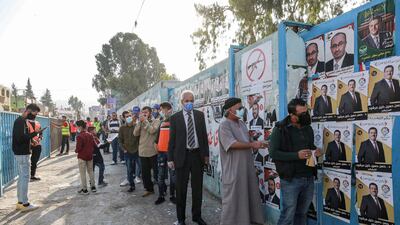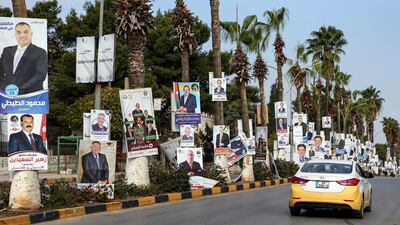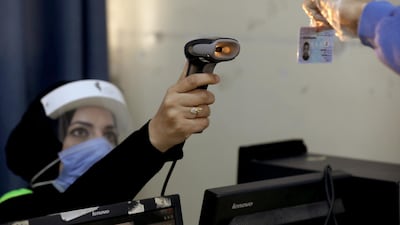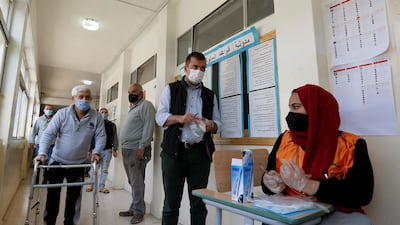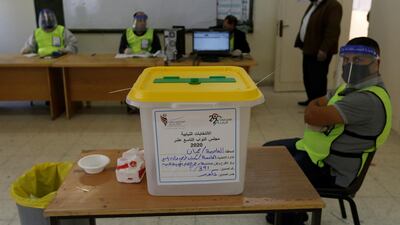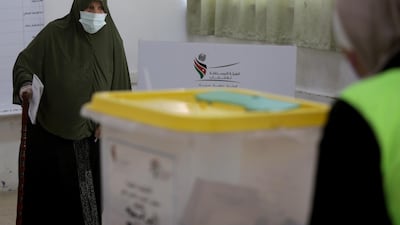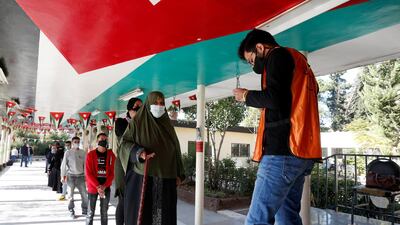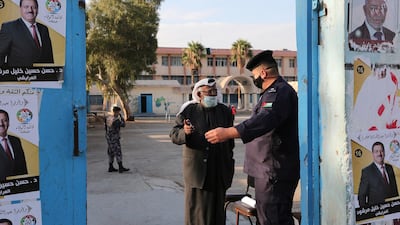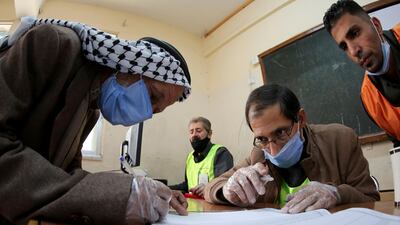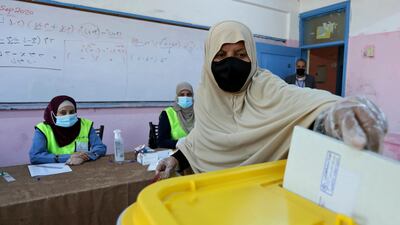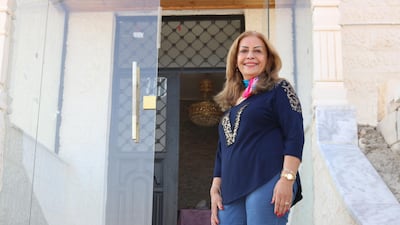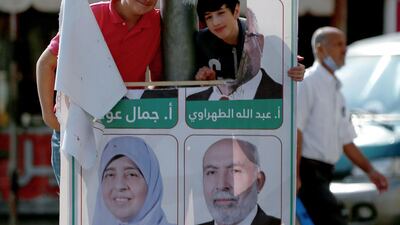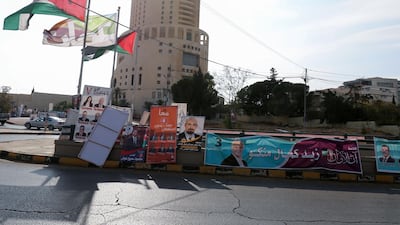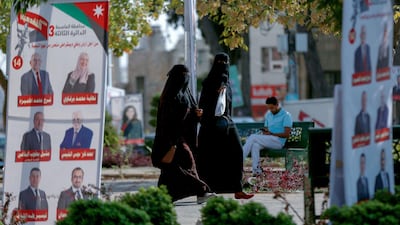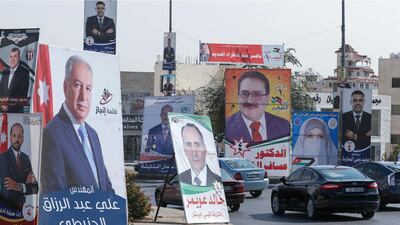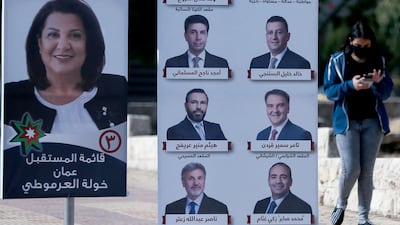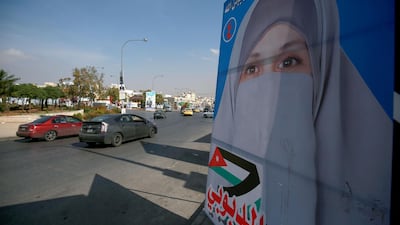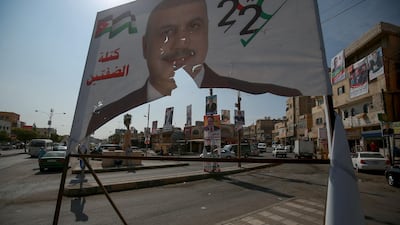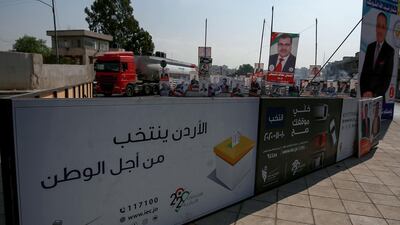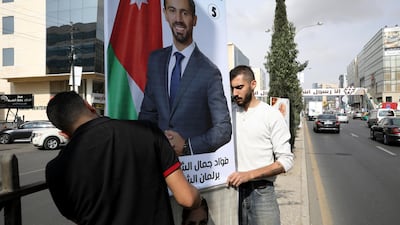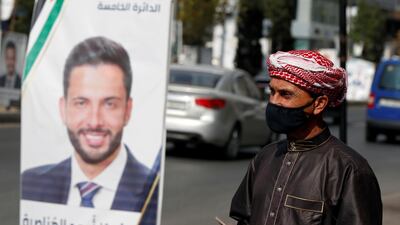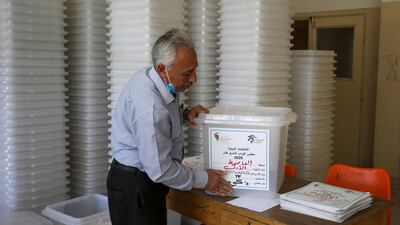Jordanian authorities extended voting hours by an additional two hours on Tuesday evening as a low voter turnout stood at 29 per cent, projecting to be a record-low for a parliamentary election in the kingdom.
A total of 1.347 million voters had turned out as of 7pm, the original closing time of the polls, as authorities hoped extended hours would boost turnout.
The previous low-point was recorded in the last legislative elections in 2016, when 37 per cent of voters showed up at the polls to choose the country’s lower house. Elections in Jordan have historically seen a 50-60 per cent participation rate.
Meanwhile, Amman’s streets were in gridlock as citizens rushed to grab bread, foodstuffs, and other essentials ahead of a four-day lockdown effective Tuesday evening at 10pm.
As Jordanians trickled to the polls, the government announced a record-high Covid-19 death toll, with 91 Coronavirus fatalities and a 5,996 new cases across the kingdom.
Polling booths opened across the country on Tuesday morning amid a nationwide Covid-19 surge and growing apathy in the capital towards a parliament that has failed to act on citizens’ demands or improve the economy.
Teenagers, young men and women drove cars plastered with the photos of candidates and colourful banners through Amman neighbourhoods, honking their horns at empty streets.
At a polling station in central Amman, a dozen masked observers and campaign supporters mingled outside the school-converted-polling station, as police slowly filed a small line of voters, each spaced a meter apart.
Mohammed Nabulsi, a retired 55-year-old, was one of several who decided to vote early.
“We are doing our duty to elect people who will represent us and clear out the figures and personalities who were only serving their pockets,” Mr Nabulsi said, declining to indicate who he voted for.
Fadi Khaled, 35, a driver and part-time accountant, was driving to his home district outside the northern city of Irbid, to vote for a woman candidate who is an active community organiser.
“Even though we do not have a political party culture, instead of voting for a party that represents me, I am voting for someone who I know serves the people and will speak out under the dome of parliament,” says Mr Khaled, who added that the previous parliament was full of long-time MPs who “never even spoke.”
“We have to be precautious, disinfect, abide by social distancing today,” he said, “but we also have to have a say about our future.”
Among the handful of infractions on Tuesday morning, a Covid-19 positive-citizen voted in a polling centre in north Amman without declaring he was infected with the virus.
According to Jordan’s Independent Electoral Commission, poll workers uncovered that the voter, a physician, was Covid-19 positive after checking the roll of voters against the database of the kingdom’s Covid-19 task force.
The Independent Electoral Commission, which is deploying a socially-distanced voting system designed to take five minutes or less, says it is approaching every voter as if they are Covid-19 positive.
Voter Maha Zaban, 50, said the health sector and access to education were the major issues that drove her to the polls.
“Before Covid-19 the health sector was already collapsing – we had chronic shortages at health centres, entire regions and villages hours away from an emergency room, and we had schools that lacked pens and paper,” Ms. Zaban said as she left a polling centre in west Amman.
“Covid finally made it an issue of national urgency, and I voted for people who I trust will push for these issues and serve people outside the capital.”
Haitham Afouri, 58, said that he voted for the same list as in 2016 as the MPs were “among the 20 per cent of parliamentarians that actually did something”,
“We need to address the economy and unemployment in this country, and I voted for MPs who actually made the economy a priority and were active in parliament,” said Mr Afouri, who runs a catering service.
Jordan’s elections are dominated by tribesmen, business people and independent community activists arranged by various electoral lists- without the organisation of political parties, ideologies or clear agendas.
One of the few political-leaning lists is Maan¸ or "together," a secular liberal coalition of candidates and MPs who are pushing for a civil state in Jordan and a concept of citizenship above confession and tribe.
The other is the Islah, or Reform Coalition, a Muslim Brotherhood-backed grouping of Islamists, nationalists, independents, Christians and Circassians who act as an opposition in parliament and look to build on 2016 polls which saw the group secure 15 out of the parliament's 120 seats.
However, Islah and Brotherhood supporters remain unenthusiastic about the elections, and some citizens say they reject the group's Islamist agenda.
Hundreds of international and local election monitors were dispersed across the polls, representing foreign governments, international democracy promotion NGOs, Jordanian election watchdogs and members representing political coalitions.
Following Tuesday's elections, the Jordanian government will impose a four-day nationwide lockdown to prevent candidate celebrations and social gatherings, and to provide a break for the kingdom's hospitals, which are reportedly over 50 per cent capacity due to a surge in Covid-19 cases that has seen Jordan's caseload jump from a few hundred earlier in the pandemic to over 5,000 new cases and 50-60 deaths per day in the past month.

